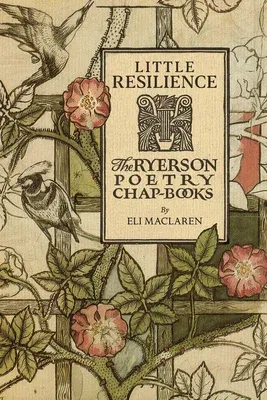The Ryerson Poetry Chap-Books were a landmark achievement in Canadian
poetry. Edited by Lorne Pierce, the series lasted for thirty-seven years
(1925-62) and comprised two hundred titles by writers from Newfoundland
to British Columbia, over half of whom were women. By examining this
editorial feat, Little Resilience offers a new history of Canadian
poetry in the twentieth century. Eli MacLaren analyzes the formation of
the series in the wake of the First World War, at a time when small
presses had proliferated across the United States. Pierce's emulation of
them produced a series that contributed to the historic shift in the
meaning of the term chapbook from an antique of folk culture to a brief
collection of original poetry. By retreating to the smallest of forms,
Pierce managed to work against the dominant industry pattern of the
day - agency publishing, or the distribution of foreign editions.
Original case studies of canonical and forgotten writers push through
the period's defining polarity (modernism versus romanticism) to create
complex portraits of the author during the Depression, the Second World
War, and the 1950s. The stories of five Ryerson poets - Nathaniel A.
Benson, Anne Marriott, M. Eugenie Perry, Dorothy Livesay, and Al Purdy -
reveal poetry in Canada to have been a widespread vocation and a poor
one, as fragile as it was irrepressible. The Ryerson Poetry Chap-Books
were an unprecedented initiative to publish Canadian poetry. Little
Resilience evaluates the opportunities that the series opened for
Canadian poets and the sacrifices that it demanded of them.

